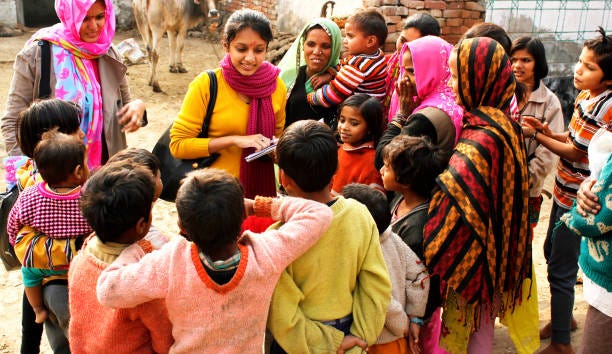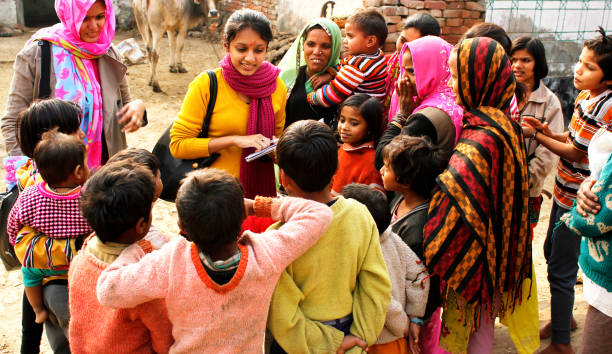Non-Governmental Organizations (NGOs) play a pivotal role in rural development, focusing on empowering marginalized communities, improving livelihoods, and promoting sustainable growth. In rural areas where access to basic services and resources is limited, NGOs step in to fill the gaps and drive positive change. This article explores the key objectives of Noida NGOs in rural development, highlighting their transformative impact on rural communities and their contribution to building resilient and thriving rural economies.

Here are the Objectives of NGO in Rural Development
1.Poverty Alleviation and Economic Empowerment
One of the primary objectives of NGOs in rural development is poverty alleviation and economic empowerment. They implement programs that create income-generating opportunities, such as vocational training, microfinance initiatives, and entrepreneurship development. By providing skills and resources, NGOs enable rural individuals to become economically self-sufficient and break the cycle of poverty.
2. Promoting Sustainable Agriculture and Food Security
NGOs focus on promoting sustainable agricultural practices and improving food security in rural areas. They offer training on modern farming techniques, water conservation, and organic farming. By enhancing agricultural productivity, NGOs ensure a steady supply of food and contribute to reducing hunger and malnutrition in rural communities.
3. Enhancing Access to Education and Healthcare
NGOs work towards improving access to quality education and healthcare in rural areas. They establish schools, learning centers, and health clinics to address the lack of educational and medical facilities. By investing in human capital, NGOs empower rural residents to lead healthier and more fulfilling lives.
4. Infrastructure Development and Basic Services
Improving infrastructure and access to basic services is a critical objective of NGOs in rural development. They collaborate with local communities and governments to build roads, bridges, and water supply systems. These efforts enhance mobility, connectivity, and access to essential services.
5. Women Empowerment and Gender Equality
NGOs prioritize women empowerment and gender equality in rural areas. They conduct workshops, training sessions, and awareness programs to empower women, enhance their skills, and promote their participation in decision-making processes. By promoting gender equality, NGOs contribute to building more inclusive and equitable rural societies.
6. Environmental Conservation and Sustainable Resource Management
Safeguarding the environment and promoting sustainable resource management are essential objectives of NGOs in rural development. They conduct awareness campaigns on environmental issues, encourage afforestation, and promote renewable energy sources to create a more sustainable future for rural communities.
7. Social Inclusion and Community Development
NGOs foster social inclusion by promoting the participation of marginalized groups in community development initiatives. They encourage community-led decision-making processes and support local initiatives that address the unique needs of different social groups.
8. Disaster Preparedness and Resilience
Building resilience against natural disasters is a key focus for NGOs in rural areas. They develop disaster preparedness plans, conduct training sessions on emergency response, and provide relief and rehabilitation support during disasters. By enhancing resilience, NGOs help rural communities recover quickly from adverse events.
Conclusion:
The objectives of NGOs in rural development are far-reaching and impactful, as they work tirelessly to uplift marginalized communities, promote sustainable practices, and create opportunities for growth and progress. Their collaborative and community-driven approach ensures that rural development initiatives are tailored to meet the specific needs of each region. By supporting and engaging with NGOs, individuals and organizations can actively contribute to building more inclusive, resilient, and prosperous rural economies. The transformative impact of NGOs in rural development not only improves the lives of rural residents but also paves the way for a more sustainable and equitable future for all.





Comments